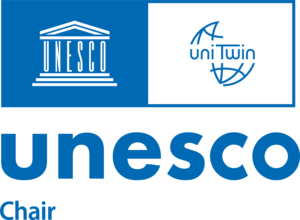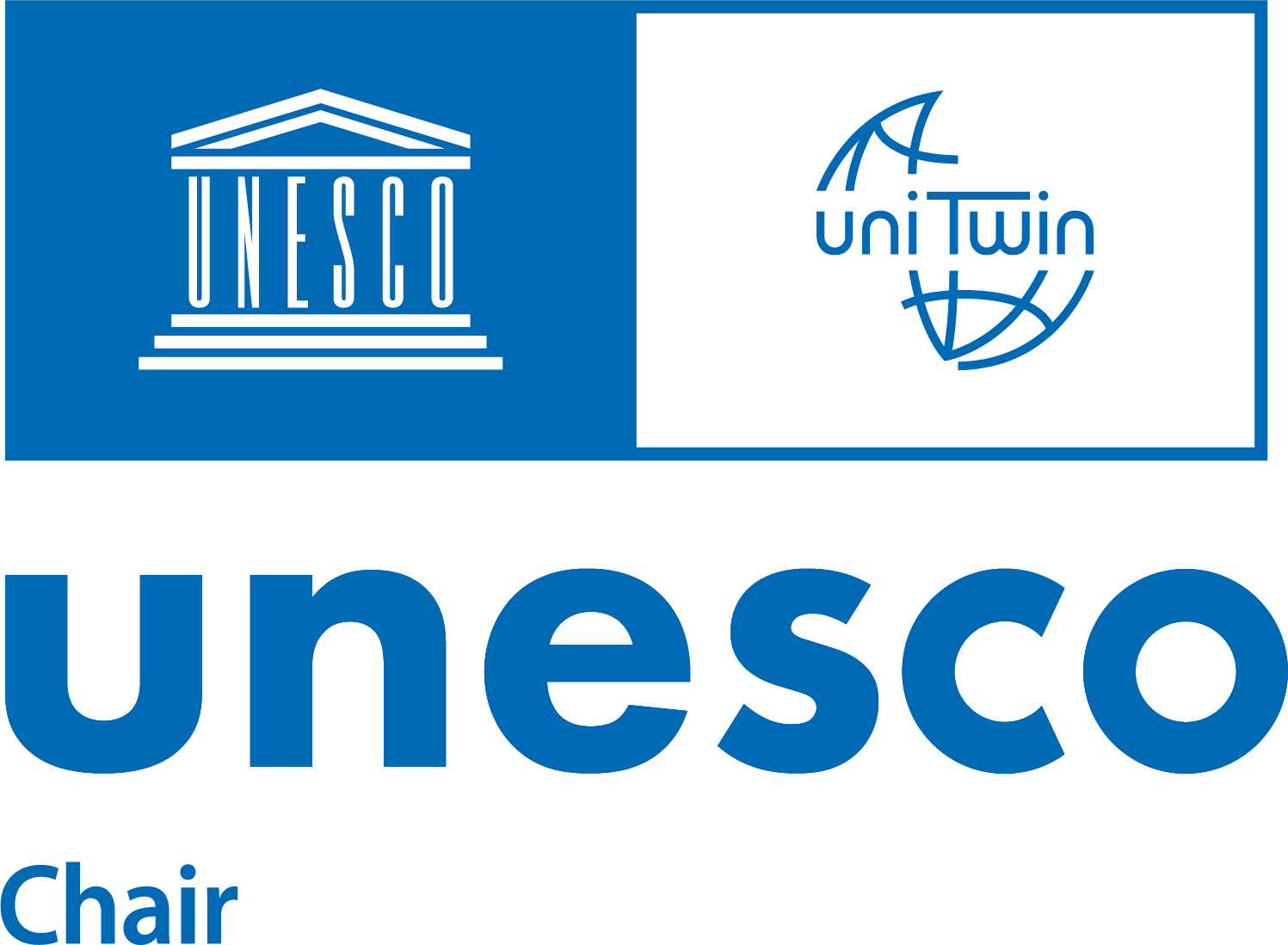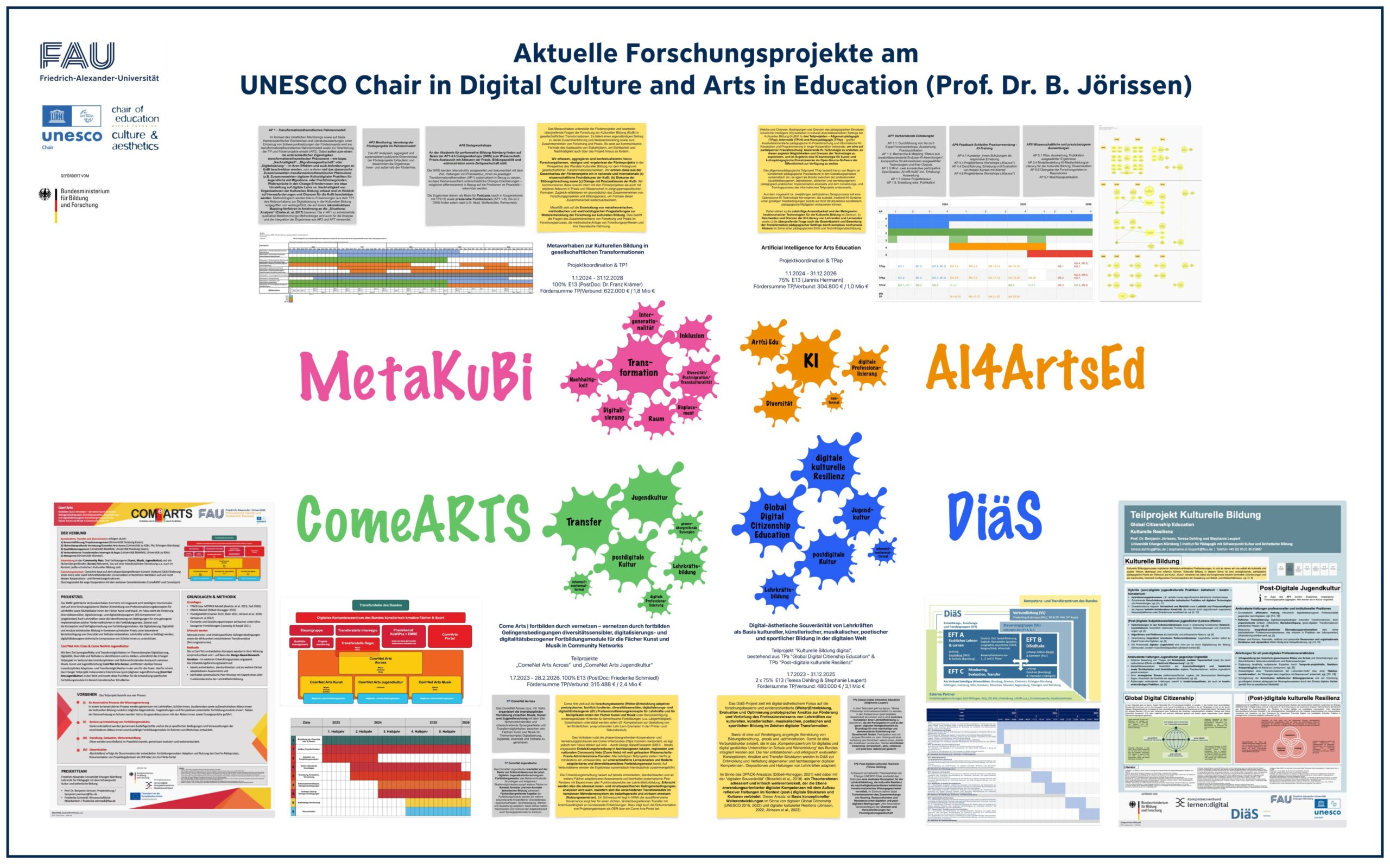Research
 Since its establishment in 2010, the Erlangen UNESCO Chair has actively engaged in national and international research within the realm of cultural and aesthetic education. From 2016 onwards, the focus has particularly shifted towards exploring the role of arts, aesthetic, and cultural education amidst cultural transformation, with an emphasis on developing a sustainable concept for cultural education. In this endeavor, the Chair is deeply invested in crafting a historiographically informed educational theory that addresses aesthetic and media phenomena, based upon qualitative-reconstructive empirical research on the nuances of our contemporary ‘post-digital culture.’ The theoretical underpinnings of the Chair’s work are firmly rooted in theories of mediality and materiality, critical theory, cultural studies, and, in alignment with these fields, post- and decolonial thinking.
Since its establishment in 2010, the Erlangen UNESCO Chair has actively engaged in national and international research within the realm of cultural and aesthetic education. From 2016 onwards, the focus has particularly shifted towards exploring the role of arts, aesthetic, and cultural education amidst cultural transformation, with an emphasis on developing a sustainable concept for cultural education. In this endeavor, the Chair is deeply invested in crafting a historiographically informed educational theory that addresses aesthetic and media phenomena, based upon qualitative-reconstructive empirical research on the nuances of our contemporary ‘post-digital culture.’ The theoretical underpinnings of the Chair’s work are firmly rooted in theories of mediality and materiality, critical theory, cultural studies, and, in alignment with these fields, post- and decolonial thinking.
Cultural Resilience: a theoretical framework for collective transformative education
Since the merging of the Erlangen “Chair of Education with a focus on Culture and Aesthetics” (held by Benjamin Jörissen since 2015) and the former UNESCO Chair in Arts and Culture in Education – now UNESCO Chair in Digital Culture and Arts in Education – in 2019, our goal was to develop an education-theoretical concept that integrates a non-individualistic, networked theory of Bildung and subjectivation, as it has been focused in our edited volume “Subjekt Medium Bildung” (Jörissen & Meyer, 2015, VS Verlag), with cultural and transformative perspectives on sustainability that we began to develop in the two international volumes “Spectra of Transformation. Arts Education Research and Cultural Dynamics” (Jörissen et al., Waxmann) and “Cultural Sustainability and Arts Education. International Perspectives on the Aesthetics of Transformation” (Jörissen et al., Springer), the latter going back to two international events — a winter school “Spectra of Transformation” we conducted in 2017 together with ENO, and the conference “Aesthetics of Transformation” which we hosted in 2018 in collaboration with our UNTIWIN partners. Based on a praxeological concept of culture, Prof. Dr. Benjamin Jörissen and Prof. Dr. Leopold Klepacki finally developed a particular understanding of “cultural resilience” that since has been the centre of several theoretical and empirical explorations.
The Chair’s ongoing research projects at a glance
(download pdf for higher resolution)
Detailed descriptions of our current and past research projects
The meta project supports the funding projects and deals with overarching questions of research on Arts and Cultural Education in social transformations. It makes an independent contribution to their consolidation and further development as well as to the interaction between research and practice. It relies on communicative formats of stakeholder exchange to promote visibility and sustainability beyond the project. To this end, we record, aggregate and contextualise research topics, designs and results of the funded projects in the perspective of the transformation of Arts and Cultural Education against the background of societal transformation dynamics. From an overall view of the funding projects, we classify them in national and international (a) academic discourses on cultural education, (b) discourses on educational research and (c) dialogues with practitioners in cultural education. We communicate these internally with the funded projects as well as with other actors in practice and science in target group-specific formats. At the same time, we fundamentally reflect on the interaction between research projects and educational practice in order to further develop formats of this cooperation. The project partners are united by their interest in developing meta-theoretical, methodological and methodological questions for the further development of research on Arts and Cultural Education. This concerns questions of the interaction of research and practice in the research process, the methodological design of research syntheses and their theoretical framing.
Contact: friederike.schmiedl (at) fau.de
AI is transforming society and the world of work; it is becoming an increasingly important topic in education. This project explores the opportunities, conditions, and limitations of using artificial intelligence (AI) in culturally diverse and diversity-sensitive settings of cultural education (KuBi). In three subprojects – General Education (TPap), Computer Science (TPinf), and Art Education (TPkp) – creativity-oriented pedagogical AI practice research and computer science AI conception and programming closely cooperate. The project systematically involves artistic-pedagogical practitioners in the design process from the beginning, acting as a bridge between professional (quality-related, aesthetic, ethical, and value-based) pedagogical-practical implementation on the one hand and the implementation and training process of the computer science subproject on the other. The result of an approximately two-year participatory design process should be an open-source AI technology that explores the extent to which AI systems can already include artisticpedagogical specifications at their structural level under favorable real conditions. The focus is on a) the future applicability and added value of highly innovative technologies for cultural education, b) the range and limits of AI literacy of teachers and learners, and c) the overarching question of assessing and evaluating the transformation of pedagogical settings by complex non-human actors in the sense of pedagogical ethics and technology impact assessment.
Contact: vanessa.baumann (at) fau.de
The “Come Arts” project aims at the research-based development and refinement of adaptive, subject-specific, diversity-sensitive, and digitalization-related (d3) professionalization concepts for teachers and multipliers in the fields of art and music, considering evidence-based criteria for effective training (including long-term effectiveness). The project systematically supports d3 competencies for designing learning-enhancing, challenging teaching-learning scenarios in primary and secondary education.
The initiative utilizes the cross-phase cooperation and exploitation structures of the Come In consortium (https://comein.nrw/portal/), but focuses more intensively on iteratively adapted development research through Design-Based Research (DBR) in subject-specific local, regional, and national community networks (Come Nets). This approach includes a broad science-practice-administration transfer: Each participating sub-project provides at least one comprehensive, adaptable, and diversity-sensitive training module suitable for various learning scenarios and needs. At the consortium level, the results are systematically integrated in an interdisciplinary manner.
The development research is based on existing, standardized assessments adaptable to other subjects and includes systematic peer reviews with experts from all functional areas of teacher training. The research explores the specific conditions for success relevant to the target group and content; it also analyzes the effectiveness of various transfer approaches within the complex multi-level system (usage scenarios). A focus is placed on North Rhine-Westphalia (NRW), where differentiated governance ensures dense, cross-state transfer that connects to nationwide developments. The documentation of project results as Open Educational Resources (OER) via a Come Arts portal also contributes to this.
The Erlangen UNESCO Chair is responsible for two part of the ComeArts project, both managed by Friederike Schmiedl as postdoctoral research associate:

